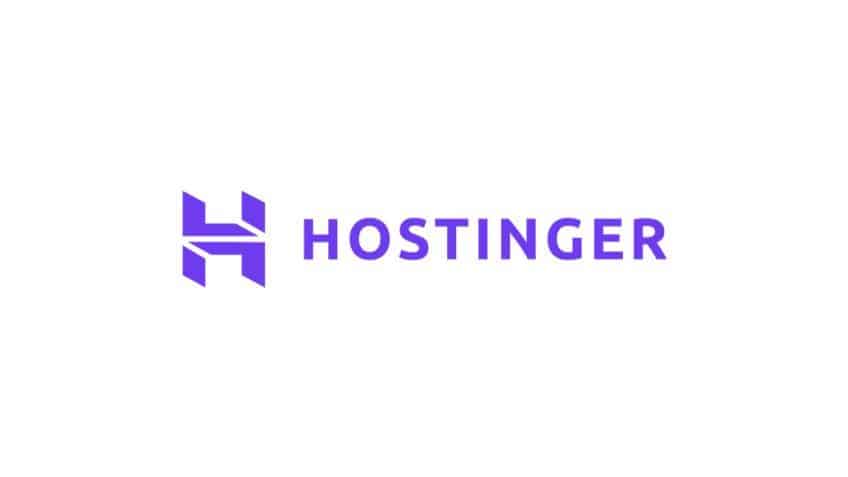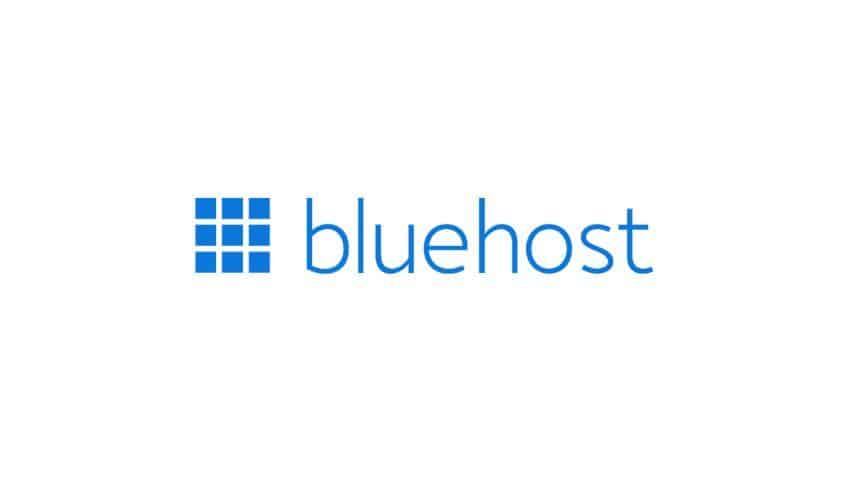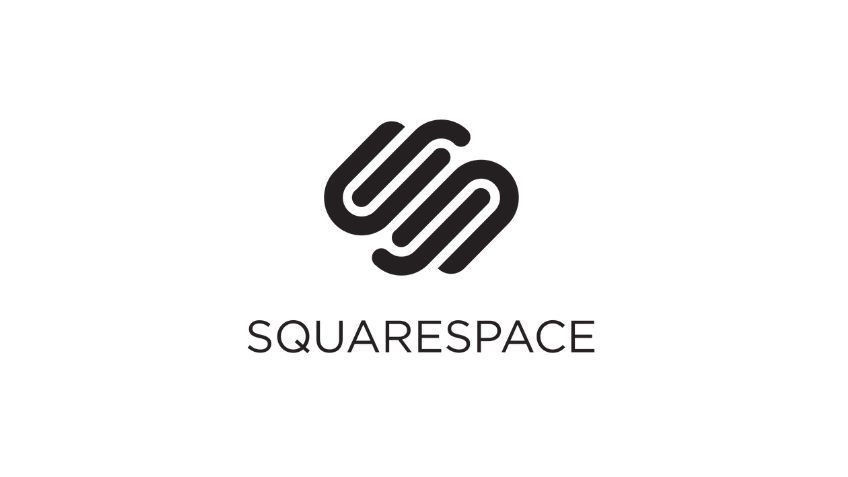With many business tools, your choice doesn’t make a huge difference. But when it comes to website builders, your decision has serious long-term implications.
Choosing the wrong website builder can box you in. If you later decide you don’t like it, switching platforms usually means rebuilding your entire site from scratch. That’s one of the biggest downsides of most website builders—once you commit, there’s no easy way out.
So, Should You Use a Website Builder in 2025?
If you’re launching a basic website that doesn’t depend heavily on organic traffic or technical performance, a website builder is a smart choice in 2025.
Small businesses, local service providers, ecommerce startups, portfolios, and similar projects will do just fine—as long as you choose a builder you can grow with for the long haul.
But if you’re starting a blog or any site that relies on search traffic, affiliate revenue, or ad monetization, you’re far better off with traditional hosting and WordPress. WordPress gives you the control, flexibility, and scalability required to optimize and grow your site over time. You don’t want to be stuck with a builder that can’t support your growth.
In that case, we recommend Hostinger’s WordPress hosting—it’s affordable and includes everything you need to hit the ground running.
If that doesn’t apply to you, keep reading. You’re exactly where you need to be.
The Best Website Builders
Several web hosting providers, like Hostinger and Bluehost, now include free website builders with their hosting plans.
These builders aren’t as robust as standalone platforms like Wix or Shopify, but they’re great if you want to keep your options open. Hostinger’s entry plan supports up to 100 websites—you can build with the included website builder or launch a WordPress site without upgrading to a new plan.
Bluehost allows up to five websites on a single plan and includes a builder that’s fully integrated with WordPress. That means you can build visually without giving up WordPress’s power and flexibility.
If traditional hosting isn’t your concern and you just want the most feature-rich website builder experience possible, here are our top picks:
- Wix – Best all-around website builder
- Shopify – Best for ecommerce businesses
- Squarespace – Best for creatives and portfolios
If your site isn’t just a basic brochure or portfolio, and you want more visual control or ecommerce power, Wix is the top choice.
Hostinger – Best Traditional Hosting + Website Builder Combo

Hostinger offers the most affordable entry point on our list, with plans starting at just $2.99/month—about one-fifth the cost of most competitors.
You can host up to 100 websites on a single plan, with 100 GB of SSD storage included. While most users won’t max that out, it’s an excellent value if you want to run multiple small sites.
Best of all, Hostinger gives you the freedom to build some sites with its website builder and others with WordPress—all under one plan.
Keep in mind, though, that website builder sites are not portable to WordPress or vice versa. Once you build with Hostinger’s builder, you’re locked into that ecosystem. That limitation is true for nearly all builders, not just Hostinger.
Still, it’s more flexible than most platforms and gives you options other website builders simply don’t offer.
The builder itself is intuitive and easy to use—even for total beginners. One user we spoke to said she created a clean, professional-looking site for her freelance writing business in less than a day, despite having no prior experience.
Its drag-and-drop interface makes design simple, and mobile optimization is automatic—your website will look good on phones, tablets, and desktops out of the box.
Hostinger also includes 100+ modern templates. But there’s a catch: once you pick a template, switching to a new one means starting over. Unlike Wix or Squarespace, Hostinger doesn’t let you change templates midstream.
While it’s not the most customizable builder, it handles the fundamentals extremely well—especially at this price point.
Need help? Hostinger’s support team is available 24/7, and its knowledge base is full of walkthroughs, tutorials, and troubleshooting guides. One customer told us, “They sometimes give canned answers, but it wasn’t a big deal—the help articles usually had what I needed.”
Bluehost – Best WordPress Website Builder


Bluehost isn’t as budget-friendly as Hostinger and doesn’t offer quite as many websites per plan, but it’s the only builder here that’s built directly on top of WordPress. That means you get all the benefits of WordPress—customization, scalability, ownership—plus Bluehost’s visual builder to help you get started.
If you change your mind about the visual builder later, you can switch to another WordPress theme without losing your content or starting from scratch.
WordPress does have a steeper learning curve than most website builders. But don’t let that scare you—it’s far more intuitive than it seems at first.
One beginner we spoke with said, “I had zero WordPress experience and still figured it out quickly. If you can’t find something, just Google it or look it up on YouTube—there’s always a guide.”
Another user praised WordPress’s flexibility. It’s open-source, meaning developers have created thousands of themes, widgets, and plugins for virtually every need—SEO, performance, marketing, forms, ecommerce, and more.
If you want to dig into the code or fine-tune every element, you can. But you don’t have to—many plugins handle the hard stuff for you.
“WordPress gave me the tools to build the blog I envisioned,” another interviewee told us. “It had everything—subscription boxes, author bios, a clean design, and I could tweak things whenever I wanted.”
Bluehost also includes beginner-friendly WordPress tools like WonderSuite and WonderBlocks, along with tutorials and how-to videos that walk you through setup and customization.
It’s not the easiest builder for beginners—but if you’re willing to invest a little time, you’ll end up with a site that’s uniquely yours and primed to grow with you.
Wix – Best Traditional Website Builder Overall


If you want a fully-featured website builder that gives you total control with minimal hassle, Wix is the best traditional website builder available in 2025.
We normally hesitate to call anything “the best overall,” but Wix earns it—it strikes the right balance between power and ease of use.
Wix is the only builder on our list that offers true drag-and-drop functionality. Most platforms restrict you to grid-based design systems, but Wix lets you place elements anywhere—no constraints.
You can start with one of hundreds of templates or use Wix’s AI-powered builder. The AI option feels like a quiz: answer a few questions, and it builds a personalized site for you. Then you can customize everything further if you want.
It’s incredibly beginner-friendly, but still gives advanced users room to experiment. Everyone we interviewed highlighted how intuitive and flexible Wix was—without sacrificing professional design.
“Wix is so easy to use,” one user told us. “They offer amazing tools, and the templates look great. I didn’t need any prior experience to build something I was proud of.”
Beyond just building pages, Wix includes tools for bookings, email marketing, forms, ecommerce, restaurant menus, events, and more—depending on your plan.
The downside? Price. Wix gets expensive fast, especially after promotional rates expire. One user told us their cost jumped significantly after the first year—more than five times Hostinger’s starting price.
Another concern: many features are available as limited free trials, which isn’t always clear during setup. You might build your site assuming a feature is included, only to discover it requires a separate upgrade later.
Fortunately, you can try Wix for free and build your site before committing. That makes it easy to see if it fits your needs before spending anything.
Shopify – Best Website Builder for Ecommerce Stores


If selling online is your main goal, Shopify is the gold standard for ecommerce website builders. No other platform is as dedicated—or as powerful—when it comes to helping you sell online.
Shopify gives you everything you need to manage an ecommerce business from top to bottom. This includes selling physical products, managing inventory across multiple locations, booking appointments, scheduling deliveries, handling taxes and shipping, and more.
Despite all of that, the platform is incredibly user-friendly—even for beginners. Whether you’re launching your first product or scaling up, Shopify has the tools to support your growth.
While other builders can do ecommerce, Shopify was built for it. It doesn’t try to serve blogs, portfolios, or service businesses. That singular focus makes a big difference.
Every feature, update, tutorial, and support article is designed specifically for ecommerce businesses. There’s no bloat—just tools that help you sell.
Shopify also functions as a complete business platform—website builder, storefront, payment processor, inventory manager, marketing hub, and shipping partner all rolled into one. If something you need isn’t built in, Shopify’s massive app marketplace almost certainly has a solution.
There are few limitations. Sell as many products and variations as you want, across multiple channels (including Amazon, TikTok, Instagram, and retail POS). You can start with a free theme or purchase one that better fits your brand. Either way, setup is fast and simple.
Shopify makes it easy to launch a beautiful, functional store without writing code. Just upload your content, configure your settings, and go live with confidence.
The only catch? Shopify is less flexible when it comes to custom design. You can make basic layout tweaks, but full customization usually requires hiring a developer.
Most users are more than satisfied with Shopify’s themes out of the box, though, so that limitation won’t matter for everyone.
Shopify starts at $29/month, making it the most expensive option on our list. But if ecommerce is your business, it’s well worth the investment. If you’re not selling products, though, look elsewhere—Shopify is laser-focused on online retail.
Squarespace – Best Website Builder for Creatives


Squarespace is the top choice for visual artists, designers, and creatives who prioritize aesthetics and brand presentation.
Everyone we interviewed who uses Squarespace was creatively driven—a web design instructor, an interior design blogger, and several portfolio-based entrepreneurs.
If visuals are a key part of your brand identity, you’ll love Squarespace’s stunning design templates. They’re polished, modern, and look fantastic right out of the box.
You don’t need to tweak much to create a website that looks world-class. Just upload your content, update your colors and fonts, and you’re ready to go.
Squarespace’s backend editor is intuitive and clean. Even first-time users—like fresh graphic design graduates or photographers building their first portfolio—can launch a polished site in less than a day.
It’s also ideal for influencers, creators, and social-first brands. Squarespace integrates smoothly with platforms like Instagram, TikTok, and YouTube, giving you a central hub for all your content.
All plans include built-in tools for social media scheduling, link-in-bio pages, and selling directly on social platforms.
That said, Squarespace isn’t perfect. Customization—especially on mobile—is a pain point for many users.
One customer praised Squarespace’s built-in ecommerce, email marketing, and podcast support, but noted it couldn’t match the deep flexibility of WordPress. Others mentioned needing to rebuild designs manually for mobile views to get things looking right.
How We Chose Which Website Builders to Review
We narrowed down our list of website builders by evaluating each one using five key criteria:
- Ease of Use
- Depth of Customization
- Scalability
- Ability to Earn Money
- Price
We looked at dozens of popular platforms and tested each one against these factors. Then we built simple websites with each tool to evaluate the user experience, design options, and core features—both on free and premium plans.
From there, we selected the top six website builders that offered the strongest overall value across those five areas. Each of them stood out for a different reason, so you can match your choice to your specific needs.
How We Reviewed Each Website Builder on Our List
At Quick Sprout, we believe real insights come from real users—not marketing fluff or sponsored reviews.
That’s why we went beyond feature lists and demo accounts. We interviewed dozens of people who use these platforms in real businesses. They shared the highs, the lows, and the unexpected frustrations they encountered while building and running their sites.
Some participated in live interviews, while others completed in-depth surveys. Either way, we asked the same questions to get a consistent sense of how each platform performs in practice.
We then combined our firsthand testing with insights from real users to create this guide and make it as helpful and honest as possible.
What We Learned While Researching Website Builders
Going into this guide, we had a few assumptions about website builders. After testing and interviewing real users, we came out with a deeper understanding of what actually matters most—especially for people building a site for the first time.
Here are a few key takeaways that stood out during our research:
Ease of Use Is Critical in the Beginning
The number-one reason people choose a website builder over WordPress is simplicity. And yes—every builder on our list is easier to use than setting up WordPress from scratch. But there are levels to it.
Some builders, like Wix and Hostinger, are extremely beginner-friendly. They offer intuitive design tools and walk you through every step. Others, like Bluehost (via WordPress), are more flexible but require more effort to learn.
The best choice depends on your comfort level and how much you’re willing to learn. If you just want a site up fast, go with something simple. If you’re okay learning a bit, more advanced builders offer bigger long-term upside.
Depth of Customization Becomes Important Later
When you’re starting out, you mostly want your website to “just work.” But as you grow, customization becomes critical. Whether it’s editing code, adding third-party tools, or creating dynamic content—you’ll eventually want more control.
Most of the users we interviewed started with a builder that felt easy—then hit limitations as their needs evolved. So, while simplicity matters in the beginning, don’t overlook how flexible a builder is for future growth.
Scalability Is Often Overlooked
Few people think about long-term scalability when launching their first site—but they should. Migrating to a new platform years down the road is a pain, especially if your site is already generating traffic or revenue.
That’s why it’s smart to pick a builder that can grow with your business. WordPress (via Bluehost or Hostinger) offers the most scalability and freedom. But builders like Shopify and Wix also provide upgrade paths through apps, plugins, and advanced features.
The bottom line? If you think your site will evolve significantly, plan for it now—not after you’ve outgrown your builder.
Website Builder FAQs
Nuoroda į informacijos šaltinį
